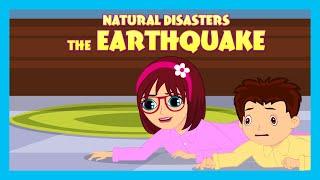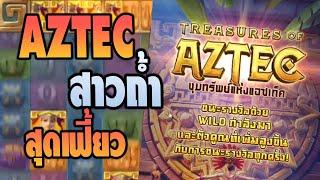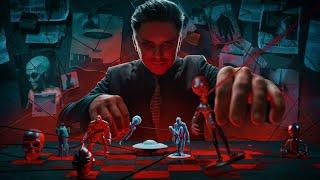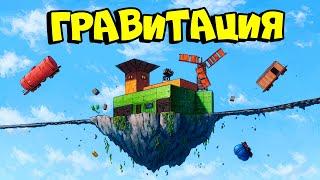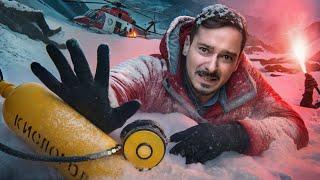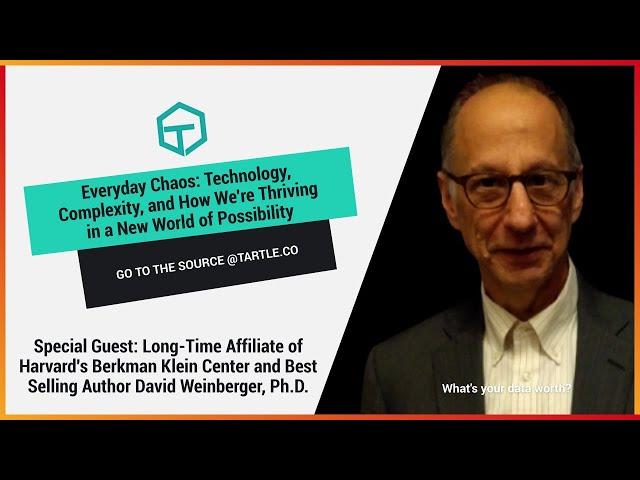
Everyday Chaos: Technology, Complexity, and How We're Thriving in a New World of Possibility
Technology is quickly becoming the backbone of modern infrastructure. At the pace that it is progressing, it may someday become as ubiquitous and as vital to our economy as cement and concrete. However, AI is agnostic. Despite its immense computing capabilities, it will never be capable of human understanding and discernment.
One example of this is the results derived from A/B Testing, where researchers compare two versions of a marketing asset to see which one performs better. While it can show which campaign would run better, it cannot provide any new learning.
Can Machine Learning Go Wrong?: At this point, David discussed an imaginary scenario where even something as non-controversial as spam mail could become a problem if it was found that legitimate emails from businesses owned by people of color were found to be falsely marked as spam at an unequal rate, in comparison to people who are not of color. Aside from the inefficiency, the AI would become an unfair metric for emails and may even be damaging businesses on the basis of race.
Social Justice And Technology: It’s a clear indication that the people responsible for programming AI have a corresponding social burden to fulfill, particularly in ensuring that their technology does not harm anyone. This burden can become even bigger when machine learning and AI is applied to other fields, such as medicine and smart transportation.
David reveals that most people who have the knowledge to work with these complex technologies do not necessarily have the same depth of understanding for social justice as well. This led to a call for participatory machine learning, otherwise known as the design justice movement.
Giving Minorities A Seat At The Table: Participatory machine learning involves people who are familiar with related issues on social justice, as well as communities who would be most affected by the presence of new technologies. They are given a position in planning and management.
Their input is important from the get-go because it does have an impact on how these systems work. To further explain, David painted the picture of an imaginary emerging smart city that decided to use AI to reinvent its bus system.
Ultimately, all the new bus stops, routes, and schedules are successful in moving people faster to their destinations, and the numbers echo its success. However, a caveat: these statistics have been decided on average, and only show that it is successful based on how well it moves affluent communities more efficiently than those located on the outskirts of the city. Those living on the outskirts, who need efficient transportation more than others for work and productivity, become isolated from the system.
The Limits of Machine Learning: Beyond the cost of bringing people to the table, David acknowledges that technological progress is already expensive in and of itself. Machine learning systems require individuals who are highly educated in computer science and computer engineering; they will also need other systems that require massive technologies to run.
Are We Entitled to Understanding Anything?: In line with TARTLE’s mission to promote stewardship and collective responsibility, Alexander asked the implications of machine learning in helping humans create better decisions and more informed choices based on the observable universe. To this, David asked a thought-provoking question: why do you think humans are entitled to understanding?
As technology continues to innovate at an unprecedented pace, David leaves us with a parting message: machine learning will drive us to examine all the values that we hold, and sometimes to consider painful trade-offs between two or more equally important values.
“So don’t hold on too tightly to any one value; think about how you may have to give up on some of it in order to support other very important targets.” David concluded. www.tartle.co
Everyday Chaos: Technology, Complexity, and How We're Thriving in a New World of Possibility Harvard Senior Researcher and Best Selling Author David Weinberger, Ph.D. by TARTLE is licensed under CC BY-SA 4.0
Tcast is an educational business and data technology video podcast that informs audiences on best practices, theory, technical functions of the TARTLE data marketplace system and how it is designed to serve society as a digital tool.
A global personal data marketplace where people share their data anonymously, buyers purchase data from sellers to further their research and causes.
The show is hosted by CEO and Source Data Pioneer Alexander McCaig and Chief Conscious Marketing Officer Jason Rigby.
What's your data worth? Find out at ( https://tartle.co/ )
Share our Facebook Page | https://go.tartle.co/fb
Watch our Instagram | https://go.tartle.co/ig
Hear us Tweet | https://go.tartle.co/tweet
One example of this is the results derived from A/B Testing, where researchers compare two versions of a marketing asset to see which one performs better. While it can show which campaign would run better, it cannot provide any new learning.
Can Machine Learning Go Wrong?: At this point, David discussed an imaginary scenario where even something as non-controversial as spam mail could become a problem if it was found that legitimate emails from businesses owned by people of color were found to be falsely marked as spam at an unequal rate, in comparison to people who are not of color. Aside from the inefficiency, the AI would become an unfair metric for emails and may even be damaging businesses on the basis of race.
Social Justice And Technology: It’s a clear indication that the people responsible for programming AI have a corresponding social burden to fulfill, particularly in ensuring that their technology does not harm anyone. This burden can become even bigger when machine learning and AI is applied to other fields, such as medicine and smart transportation.
David reveals that most people who have the knowledge to work with these complex technologies do not necessarily have the same depth of understanding for social justice as well. This led to a call for participatory machine learning, otherwise known as the design justice movement.
Giving Minorities A Seat At The Table: Participatory machine learning involves people who are familiar with related issues on social justice, as well as communities who would be most affected by the presence of new technologies. They are given a position in planning and management.
Their input is important from the get-go because it does have an impact on how these systems work. To further explain, David painted the picture of an imaginary emerging smart city that decided to use AI to reinvent its bus system.
Ultimately, all the new bus stops, routes, and schedules are successful in moving people faster to their destinations, and the numbers echo its success. However, a caveat: these statistics have been decided on average, and only show that it is successful based on how well it moves affluent communities more efficiently than those located on the outskirts of the city. Those living on the outskirts, who need efficient transportation more than others for work and productivity, become isolated from the system.
The Limits of Machine Learning: Beyond the cost of bringing people to the table, David acknowledges that technological progress is already expensive in and of itself. Machine learning systems require individuals who are highly educated in computer science and computer engineering; they will also need other systems that require massive technologies to run.
Are We Entitled to Understanding Anything?: In line with TARTLE’s mission to promote stewardship and collective responsibility, Alexander asked the implications of machine learning in helping humans create better decisions and more informed choices based on the observable universe. To this, David asked a thought-provoking question: why do you think humans are entitled to understanding?
As technology continues to innovate at an unprecedented pace, David leaves us with a parting message: machine learning will drive us to examine all the values that we hold, and sometimes to consider painful trade-offs between two or more equally important values.
“So don’t hold on too tightly to any one value; think about how you may have to give up on some of it in order to support other very important targets.” David concluded. www.tartle.co
Everyday Chaos: Technology, Complexity, and How We're Thriving in a New World of Possibility Harvard Senior Researcher and Best Selling Author David Weinberger, Ph.D. by TARTLE is licensed under CC BY-SA 4.0
Tcast is an educational business and data technology video podcast that informs audiences on best practices, theory, technical functions of the TARTLE data marketplace system and how it is designed to serve society as a digital tool.
A global personal data marketplace where people share their data anonymously, buyers purchase data from sellers to further their research and causes.
The show is hosted by CEO and Source Data Pioneer Alexander McCaig and Chief Conscious Marketing Officer Jason Rigby.
What's your data worth? Find out at ( https://tartle.co/ )
Share our Facebook Page | https://go.tartle.co/fb
Watch our Instagram | https://go.tartle.co/ig
Hear us Tweet | https://go.tartle.co/tweet
Тэги:
#tartle #data #big_data #Computer #Future #Machine_learning #Science #ai #algorithms #analysis #artificial_intelligence #chaos #complexity #deep_learning #humanity #internet #tech #technology #universe #world #data_science #complex_technologies #algorithmКомментарии:
The BEST Glute Exercise!?
Squat University
A Boy Ate Nothing But Junk Food! This Is What Happened To Him
The Infographics Show
Grace of Ebisu slot by Pragmatic Play - Gameplay
Slot Catalog
JORNAL DA CULTURA | 14/12/2024
Jornalismo TV Cultura
فيلم اكل فاطمة لا يقاوم "اشغال شقة" بطولة هشام ماجد واسماء جلال ومصطفي غريب وإيمان السيد
EProducers Productions
hes a twitcherr
Momma_tester90
สล็อตแตกง่าย2022 : Treasuresofaztecสาวถ้ำสุดเฟี้ยวเวลาแตกก็จัดหนักเหมือนกันนะ
เฮียหมาน สล็อทวอเลท


